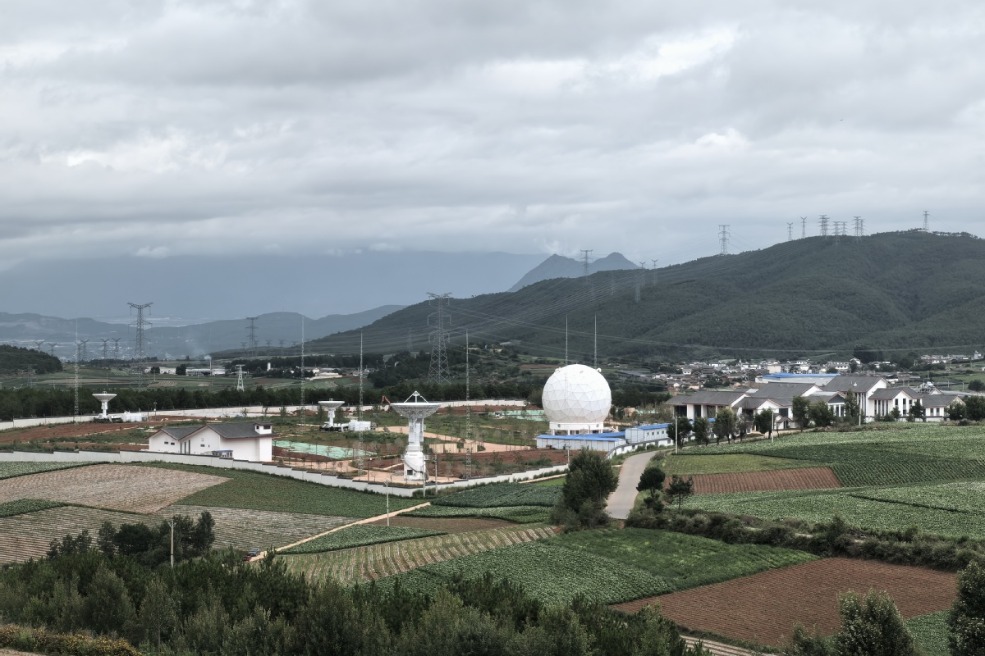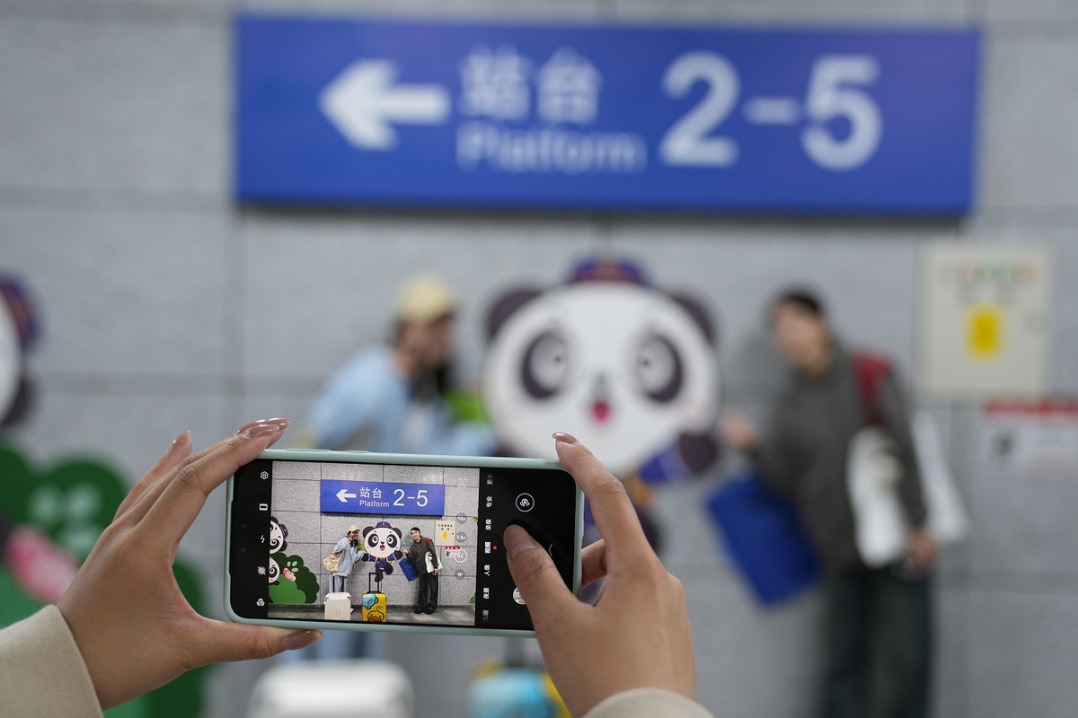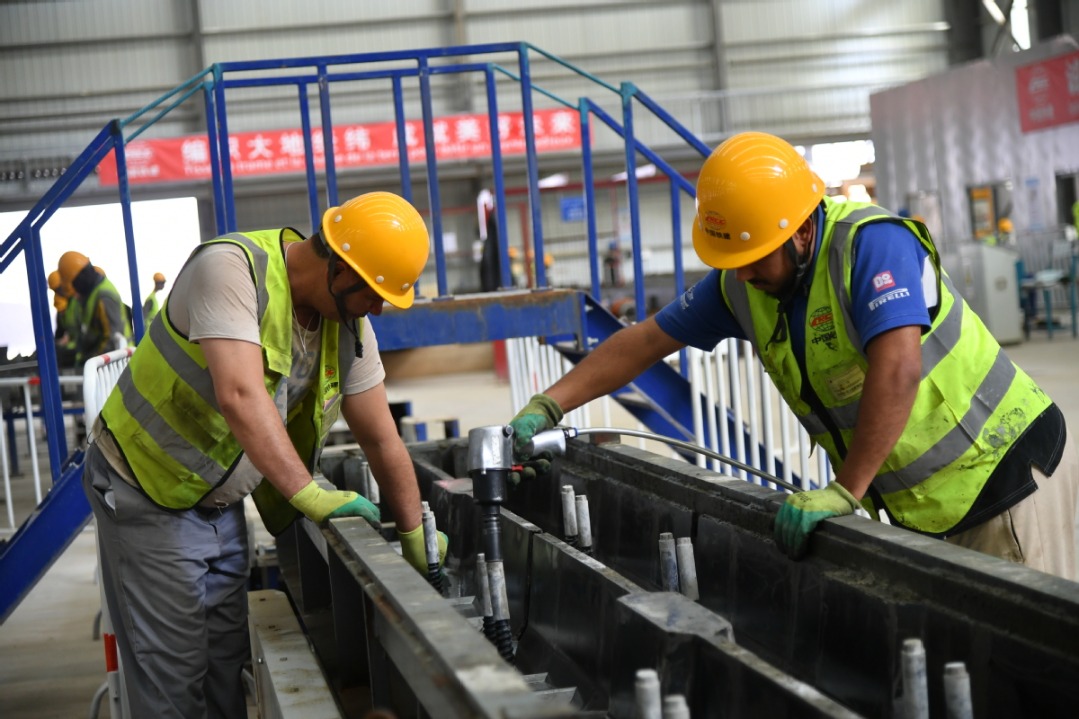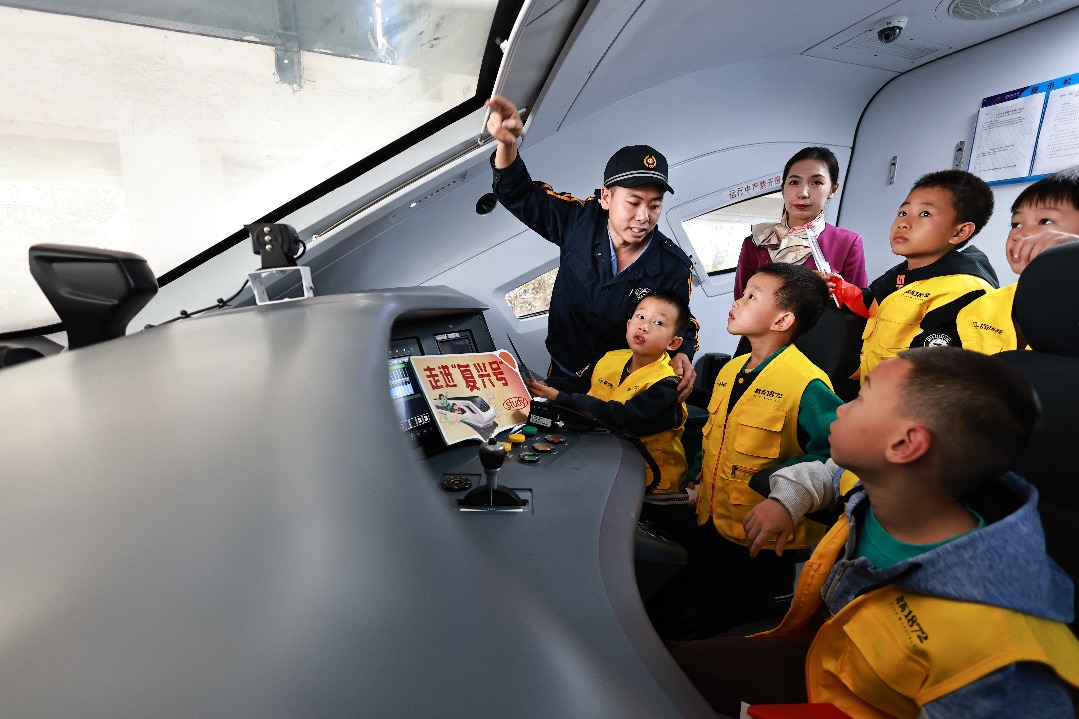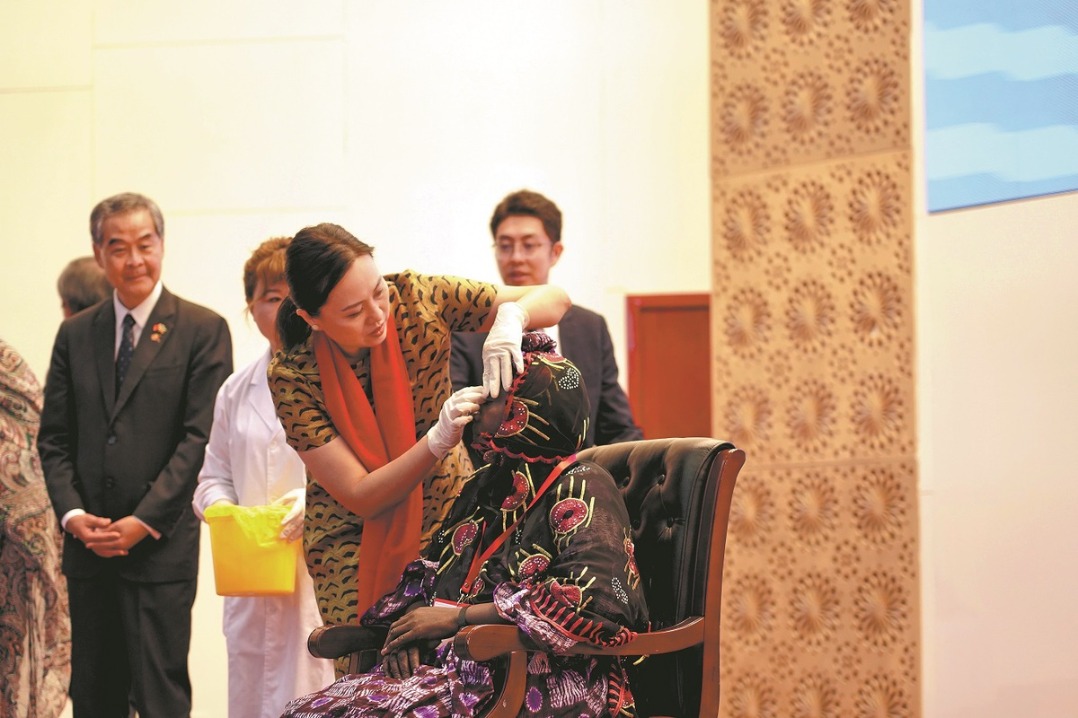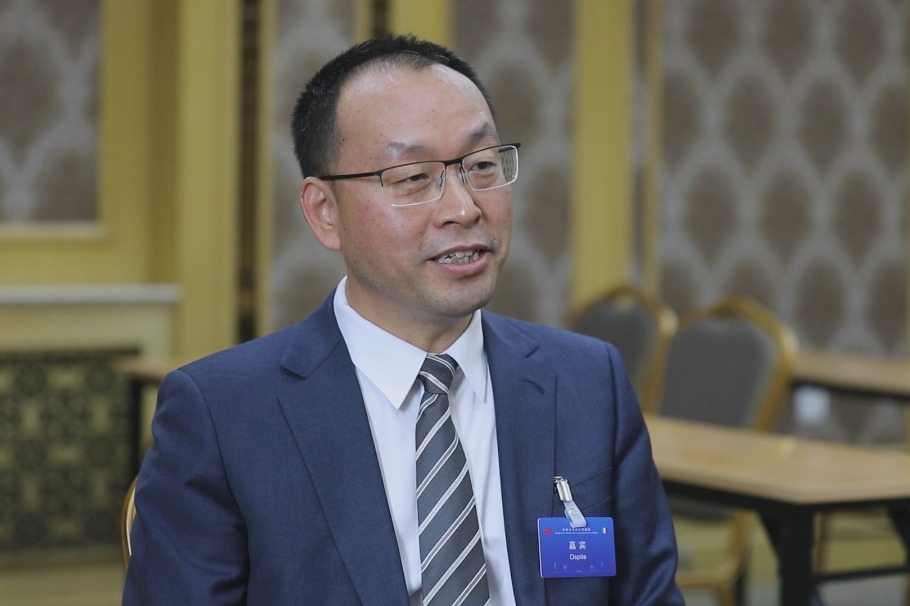Xi: People are best bridges for state exchanges


The president has been advancing a new type of diplomacy with personal letters, initiatives
Editor's note: Xi Jinping Thought on Diplomacy is the fundamental guideline for China's diplomatic work in the new era. China Daily is publishing a series of stories to examine how Xi's proposals have become internationally accepted and made great contributions to world peace and human progress.
At the start of the new semester in August, 105 students at Niles North High School in Skokie, Illinois, had chosen to learn Chinese as a world language.
Four months ago, a group of over 40 students from this school received a letter in reply from President Xi Jinping encouraging them to make greater progress in studying Chinese.
Todd Bowen, director of world languages at Niles Township High School District 219, said Chinese classes began in 2008 following requests from parents and a student interest survey.
"American public schools are increasingly aware of the economic, political and strategic needs for learning Mandarin Chinese," he said in an email.
Recalling the letter exchange with China's leader, Bowen said he was most impressed that the students received a personalized response. "We are honored to receive it," he said.
When the students in their first year of studying Chinese began practicing asking questions and writing, their teacher had them write a letter to Xi as practice, Bowen said.
The teacher "was pleased with how well they did, so the students voted on the letter they wanted to send", he said.
In the letter, the students said that they love the Chinese language and characters, as well as music and Chinese food, and that they would love to have the chance to visit China.
The letter was sent to the Chinese consulate in Chicago and then sent on to Beijing.
In his reply, Xi welcomed the students to visit China and said he hopes that they will make contributions to promoting friendship between the Chinese and American peoples.
It was not the first time this year that Xi has replied to letters to foreign students who are studying Chinese and praised their enthusiasm for Chinese culture.
In June, after receiving a letter from Daichi Nakashima, a prize-winner in the Panda Cup Japan Youth Essay Contest, Xi said in his reply that he was glad to see that Nakashima has been studying the Chinese language and literature for a long time, and the president encouraged young people in China and Japan to make contributions to a bright future for bilateral relations.
Xi also encouraged Italian students to become modern-day Marco Polos as cultural ambassadors between the two countries in a letter responding to students of an Italian boarding school before his state visit to the country in March.
Promoting people-to-people exchanges is an important aspect of Xi Jinping Thought on Diplomacy as such exchanges serve as a major channel to establish connections among the people in different countries, said Li Haidong, a professor of US studies at China Foreign Affairs University.
"Diplomacy is not only affairs between country and country, or government and government, it is more about the people," Li said.
When the people of two countries come to understand each other and their interests are intertwined, relations between their governments and countries will be stable and peace and development also guaranteed, he added.
Xi has emphasized on many diplomatic occasions, especially during overseas trips, that friendship that derives from close contact between peoples holds the key to sound state-to-state relations.
During his state visit to Germany in 2017, Xi attended the opening ceremony of the Panda Garden at Zoo Berlin, where two giant pandas from Sichuan province made their debut before the German public.
Xi said he hoped that Meng Meng and Jiao Qing would serve as new ambassadors promoting friendship between the two peoples.
After a deadly earthquake hit Wenchuan county in Sichuan province in 2008, the Ocean All-Russia Children's Care Center in Vladivostok hosted hundreds of Chinese children from Wenchuan, providing them with rehabilitation services.
Xi visited the center twice, in 2010 and 2018.
During his second visit, Xi said the history of China-Russia relations is also the history of close exchanges between the two countries' young people, urging more exchanges between the youths to help hand down China-Russia friendship from generation to generation.
Xi's personal interaction with everyday people not only helps them feel his confidence and affinity, but also helps to improve the soft power of China's diplomacy in a subtle way, said Guo Yanjun, director of the Institute of Asian Studies at China Foreign Affairs University.
In 2014, Xi visited Australia's Tasmania state to fulfill his promise made to a late friend of his 13 years earlier.
Jim Bacon, then premier of Tasmania, visited China in 2001 when Xi was governor of Fujian province, which had established a sister state relationship with Tasmania.
Xi told Bacon's family that Bacon invited him to visit Tasmania then and he agreed.
He praised Bacon as an old friend of the Chinese people for his contribution to relations between China and Tasmania as well as Australia and invited his family to visit China in the future.
"People-to-people exchanges pave the road for handling international relations," Han Fangming, deputy director of the Foreign Affairs Committee of the Chinese People's Political Consultative Conference's National Committee, said in an article published in Public Diplomacy Quarterly, which is sponsored by the Foreign Affairs Committee.
He also proposed the establishment of an innovative, high-level people-to-people exchange mechanism that also involves not only politicians, but also governmental departments, think tanks and individuals in extensive cultural exchanges between China and other countries.
In a speech at the opening ceremony of the Conference on Dialogue of Asian Civilizations in May, Xi said people are the best bridge for exchanges and mutual learning among different cultures.
"Closer people-to-people exchanges and mutual learning, for that matter, are sure ways to eliminate estrangement and misunderstanding and promote mutual understanding among nations," he said.
The conference was initiated by Xi to promote cross-civilization exchanges and mutual learning across Asia and build an Asian community with a shared future.
According to Guo, of China Foreign Affairs University, as China moves closer to the center of the world stage, the country's development has attracted increasing attention from others, some of whom know little or nothing about China.
"Strengthening people-to-people exchanges will also help people around the world to know more about China's politics, diplomacy, economy and culture, and eliminate some bias against China from international society," he said.
Such exchanges can involve fields such as dialogue among civilizations, art exchanges, tourism and education cooperation as well as youth exchanges, Guo said.
"Any kind of communication in these areas will help to establish and promote connections among people in different countries, thus laying a solid foundation for building the community with a shared future for mankind," he added.
According to Bowen, the Illinois school is looking for a partner school in China, and "perhaps we will see more and more students choose Chinese classes after we have an exchange established".
He said he thinks that communication and experiencing each other's culture is a means to build a bridge between peoples and their countries, so it is vital to have students who learn Chinese and understand Chinese culture given the current state of China-US relations.
"When we share an understanding of each other, we can better collaborate for the good of all," he said.
- Chinese, Italian universities to usher in new era of architecture
- China achieves complete real-time reception of satellite data
- China's CAS Space launches 15 satellites, including Oman's first, in landmark commercial launch
- China, Italy urged to deepen educational cooperation
- Panda-themed railway station to open soon in Chengdu
- Xi replies to friendly personages in Brazil
















